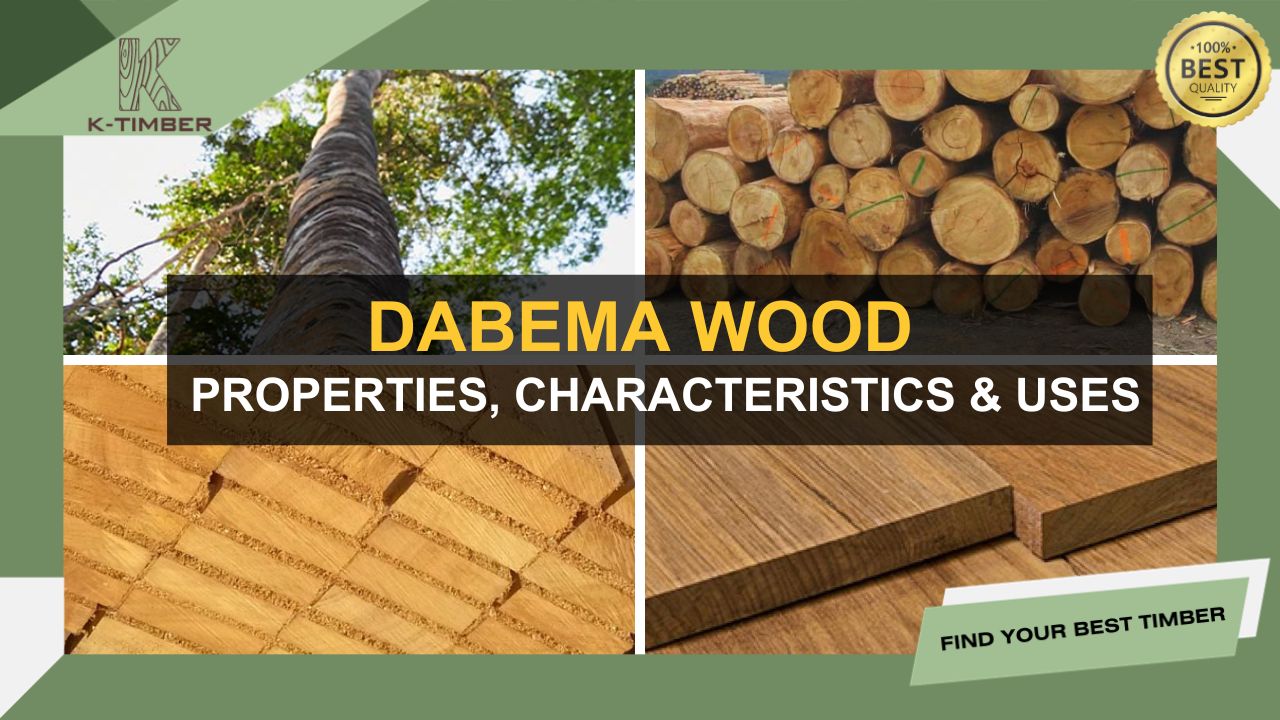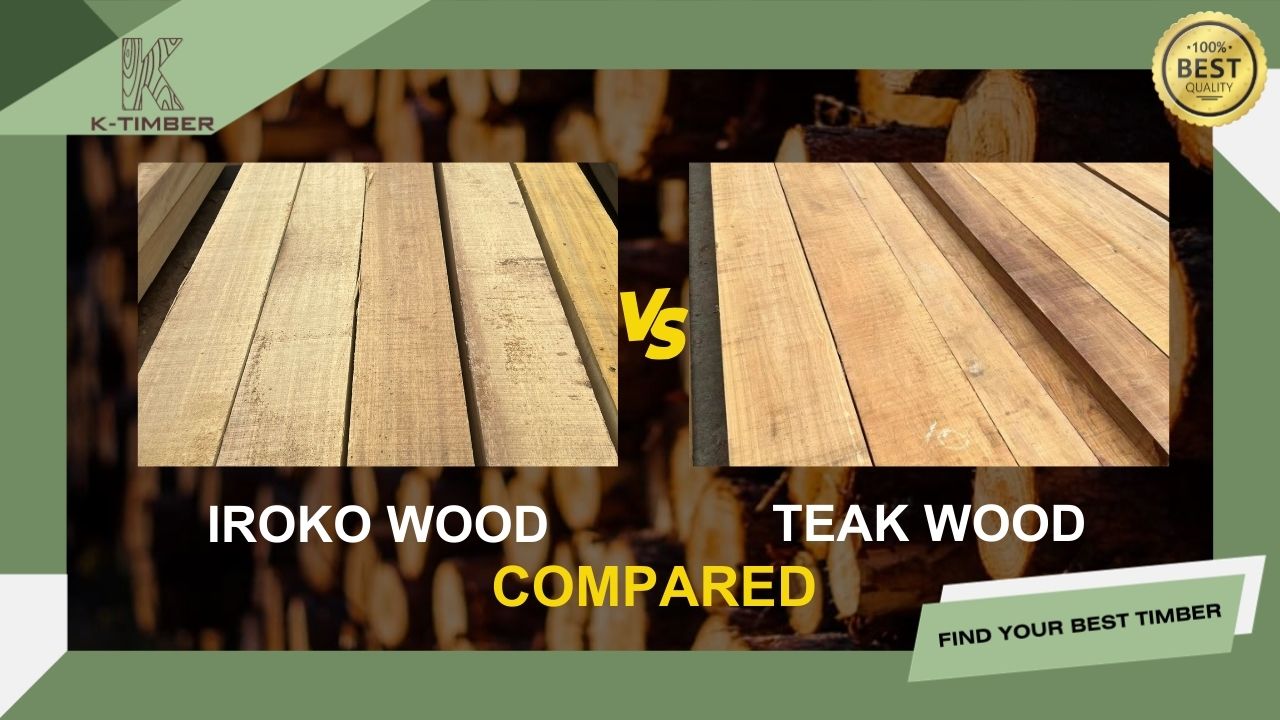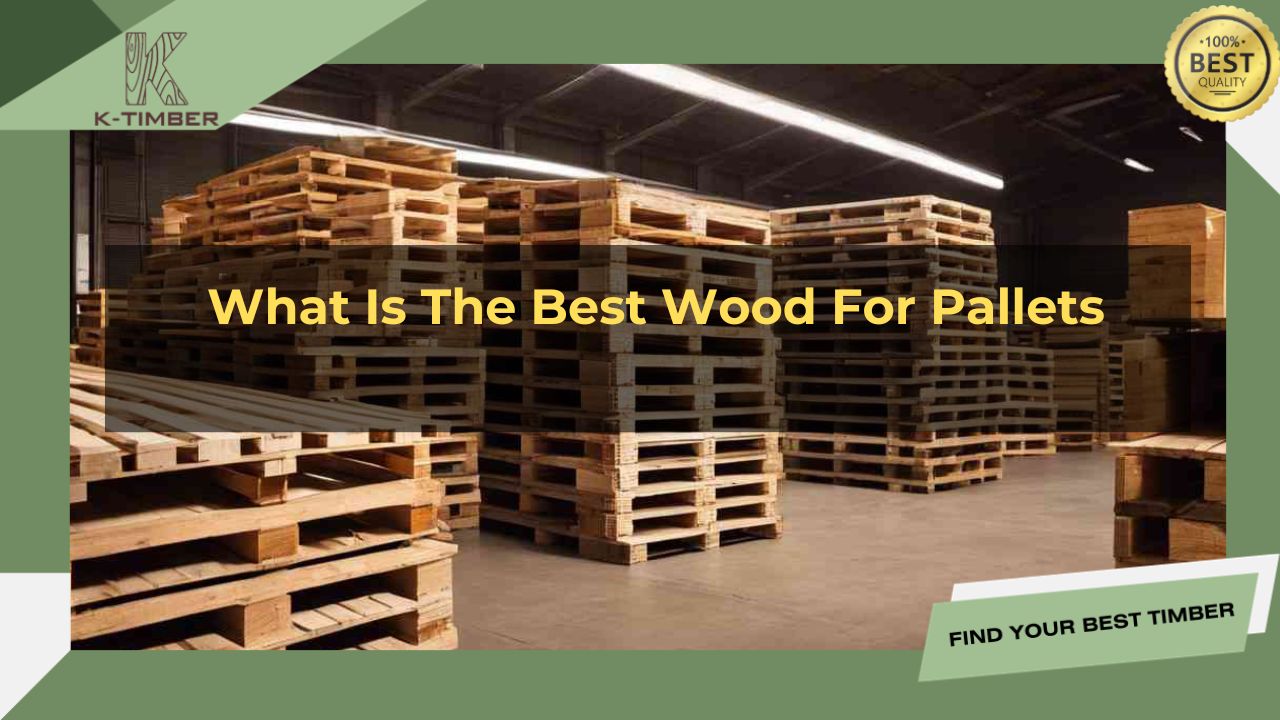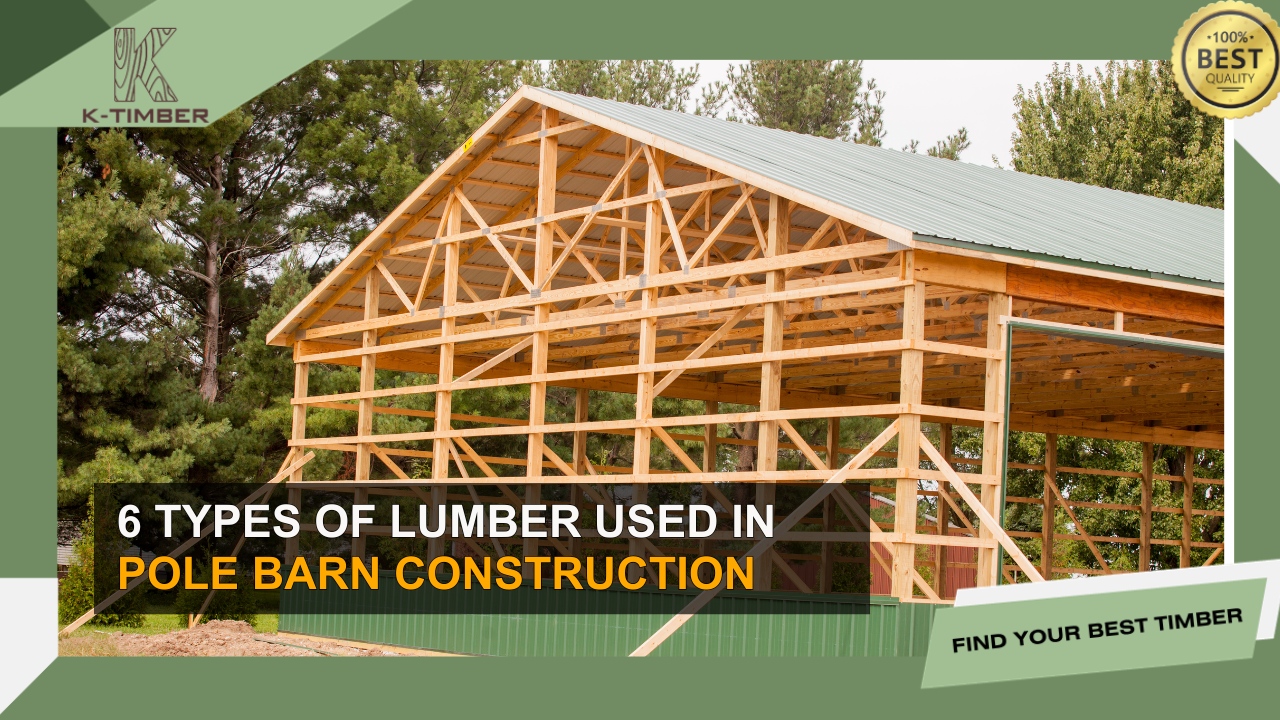Iroko Wood, also known as African teak, is a hardwood timber from the Milicia Excelsa tree, native to tropical Africa. With its beautiful golden brown color, high hardness, and excellent weather resistance, Iroko is one of the most versatile woods for any project. So why is Iroko so popular? Let’s explore the properties and uses of this wood in the article below.
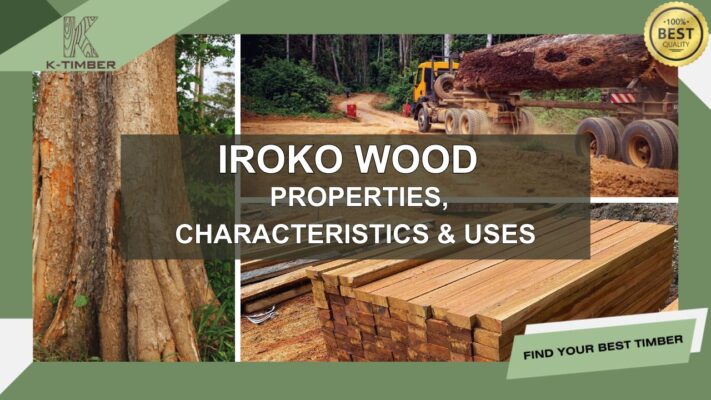
Table of Contents
Iroko Wood General information
Iroko is a hardwood native to the tropical rainforests of West Africa. It is also known as African Teak, although it is not botanically related to Teak. Iroko wood is divided into two species, Milicia excelsa (Chlorophora excelsa) and M.regia (C.regia). Milicia excelsa is found throughout the tropical regions of Africa, while M.regia is only found in West Africa, such as Ghana and Gambia.
The hardwood of Iroko is harvested from trees that can grow up to 150 feet (46 meters) tall and 6 feet (1.8 meters) in diameter. They have a long lifespan, with some trees living for over 500 years. The wood has a beautiful golden brown color with distinctive grain patterns.
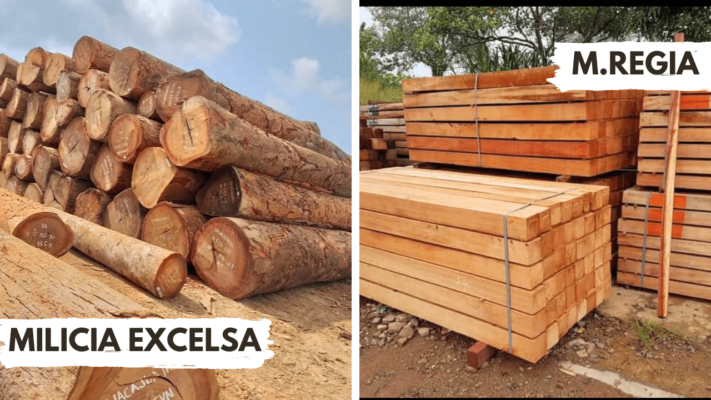
Iroko is considered to be a sustainable wood because it is not at risk of extinction and is being sustainably managed in some areas. However, there are some concerns about the sustainability of Iroko in some parts of Africa, where deforestation is a problem. Therefore, to choose high-quality and assured Iroko timber, consumers should carefully research the wood’s origin.
K-TIMBER is a reputable African timber supplier that is committed to providing sustainably sourced Iroko wood at the most competitive prices on the market.
Iroko Wood Properties
Color and Texture
Iroko sapwood has a light yellow to brown color that is clearly delineated from the heartwood, with lighter veins easily visible on the flat sawn surface. The heartwood is a pale yellow to golden color and tends to darken over time, turning to a golden brown or olive brown or sometimes a chocolate brown. It is clearly demarcated from the 5–7.5 cm wide, pale yellow sapwood.
The grain is interlocked and sometimes irregular and the texture is quite coarse, but even, with speckled mottling. Iroko lumber is slightly oily and has no distinctive odor.
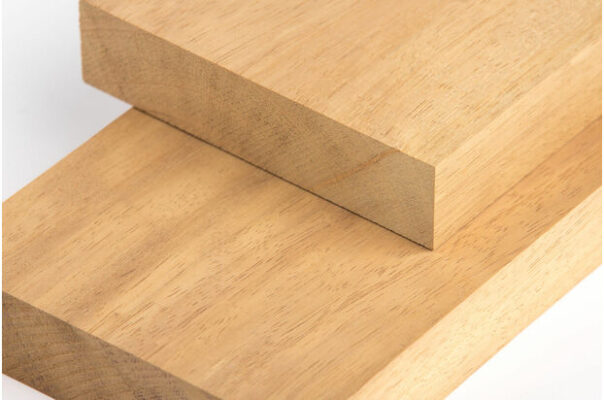
Density and strength
Iroko is a dense and strong hardwood with a Janka hardness of 1,260 lbf (5,310 N) and a density of approximately 660 kg/m³. This makes it highly resistant to damage from impact, scratches, and wear. Its durability also makes it a good choice for applications where load-bearing capacity is a concern, such as flooring and furniture.
Workability
Iroko is a wood that is quite easy to work with, with a medium to rough texture. Iroko wood has interwoven fibers that cause some tears during the processing process. In addition, It also tends to dull tools due to the presence of calcium carbonate residue that causes dullness on the cutting surface.
Additionally, Iroko timber has good glue, nailing, finishing, and varnishing properties, with acceptable steam bending rates.
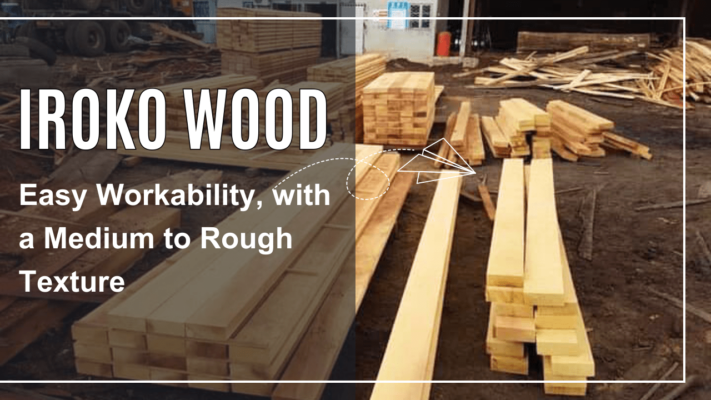
Iroko Wood Technical Properties
| TECHNICAL PROPERTIES | VALUE |
| Average Dried Weight | 41.2 lbs/ft3 (660 kg/m3) |
| Specific Gravity (Basic, 12% MC) | 0.56, 0.66 |
| Janka Hardness | 1,190 lbf (5,310 N) |
| Modulus of Rupture | 14,080 lbf/in2 (97.1 MPa) |
| Elastic Modulus | 1,580,000 lbf/in2 (10.90 GPa) |
| Crushing Strength | 7,750 lbf/in2 (53.5 MPa) |
| Shrinkage | Radial: 3.3%
Tangential: 4.8% Volumetric: 8.8% T/R Ratio: 1.5 |
The Difference Between Iroko Wood and African Teak Wood
Iroko and Teak are two types of wood that have many similarities in both characteristics and uses. Both of these African hardwoods have a light golden brown color that darkens with age. Both types of wood are highly durable and resistant to harsh weather conditions. Therefore, it is not surprising that Iroko wood is known as “African teak”.
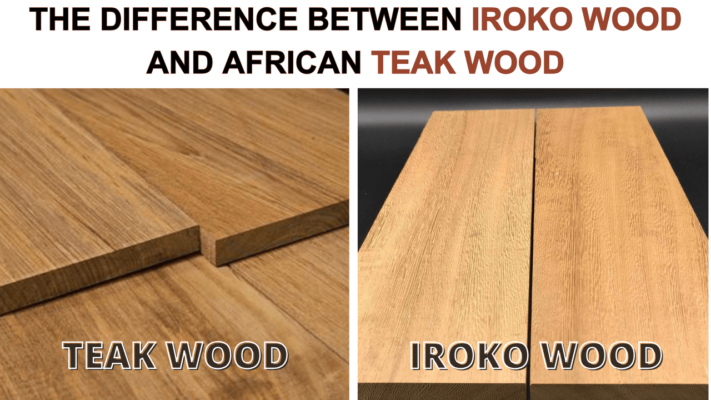
However, teak is much more durable and dense than Iroko timber. Both iroko and teak are highly durable woods that are resistant to rot, decay, and insect infestation. They are also both naturally weather-resistant, making them ideal for outdoor applications. However, iroko is slightly less water-resistant than teak, so it may require additional sealant or treatment for extended exposure to moisture.
In terms of price, Iroko wood has a lower price than Teak wood, making it a perfect replacement for teak wood. Along with its availability and ease of harvesting and processing, it has become the most popular choice today in carpentry and industrial projects.
Iroko Wood Advantages
Iroko is a sturdy wood, its durability and easy workability make it an ideal choice for many hand carpentry projects and is popular with carpenters around the world.
- Iroko wood is highly durable and has excellent rot resistance. This is also the reason why this type of wood is commonly used in interior and exterior projects.
- Iroko timber is also naturally resistant to insect attack, making it suitable for many outdoor projects such as decks and fences.
- Iroko is also a type of wood that is easy to work with
- In terms of price, Iroko is at an average price compared to many other types of imported wood. Sometimes this type of wood is used as a substitute for teak because it is more durable and cheaper.
Iroko Wood Disadvantages
- Although there have been no serious health reactions, Iroko has been found to contain allergens that can cause skin, eye, and respiratory irritation.
- Iroko is a wood that does not require CITES certification but is listed as vulnerable on the IUCN Red List.
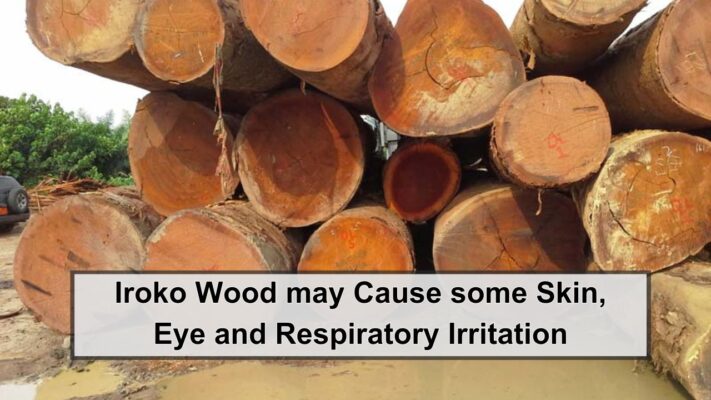
Iroko Lumber Uses
Iroko lumber is a valuable and versatile wood that is used for a wide variety of applications. It is a popular choice for cabinetwork, exterior joinery, flooring, veneer for the interior of plywood, and shipbuilding.
Iroko is widely used for veneer because of its beautiful appearance and good durability. With its golden brown color and wavy grain, It is also one of the top choices for interior decoration.
In addition, some other special applications of Iroko wood include vehicle or container flooring, interior paneling, construction materials, etc.
Learn more: Sapele Wood: Properties, Characteristics & Uses
Where to buy Iroko Wood in bulk at the best price?
If you are looking for a place to buy high-quality, affordable Iroko wood, K-TIMBER is a great option. We are a leading African timber supplier in the world, with over 20 years of experience in the industry. We specialize in Iroko lumber and a variety of other imported African woods in a variety of sizes, meeting all customer requirements, even the most demanding ones.
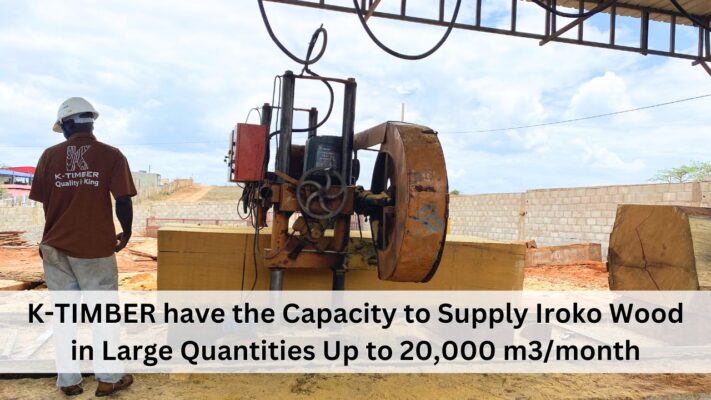
We have the capacity to supply Iroko wood in large quantities up to 20,000 m3/month to serve your large and small construction projects. All types of wood at K-TIMBER are subject to strict wood inspection procedures from the time of logging, processing, and drying to the packaging, transportation, and delivery to customers.
K-TIMBER is confident that we will provide you with a stable, high-quality Iroko wood supply at a price that is 20% cheaper than the market. We are here to support you in any interior, flooring, or other projects.
Contact K-TIMBER today to learn more about Iroko wood and receive the best price!



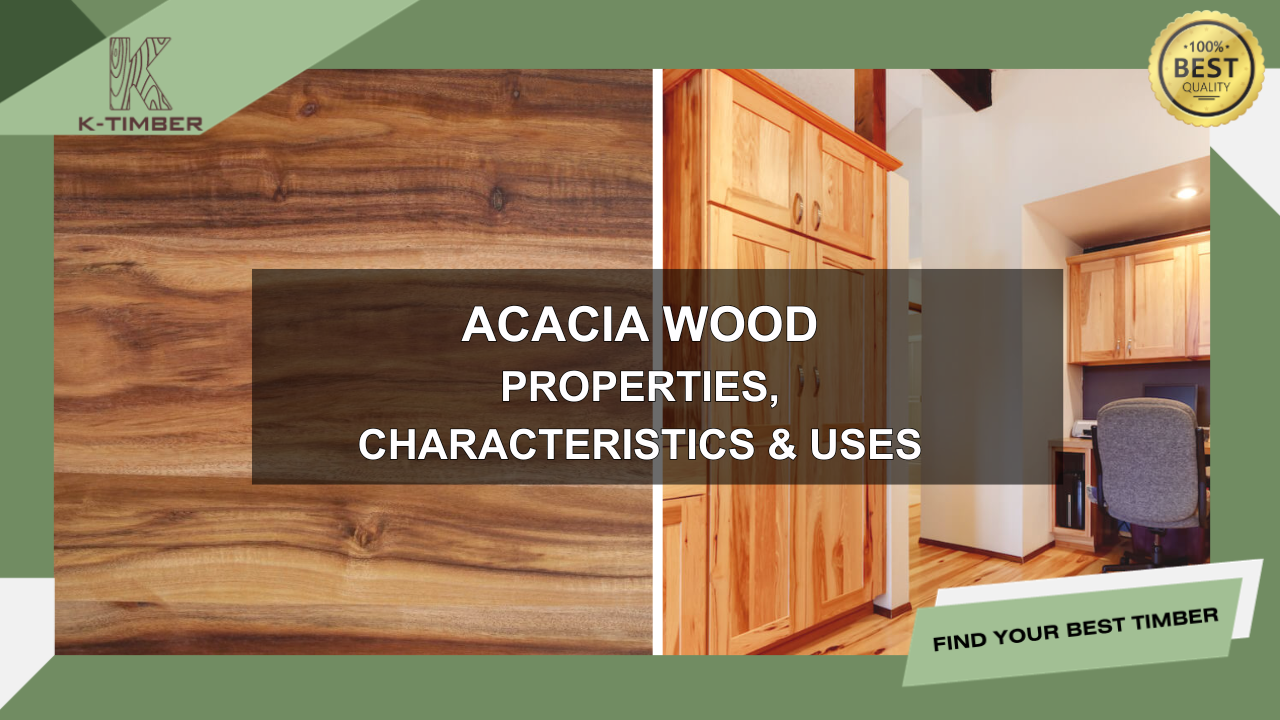
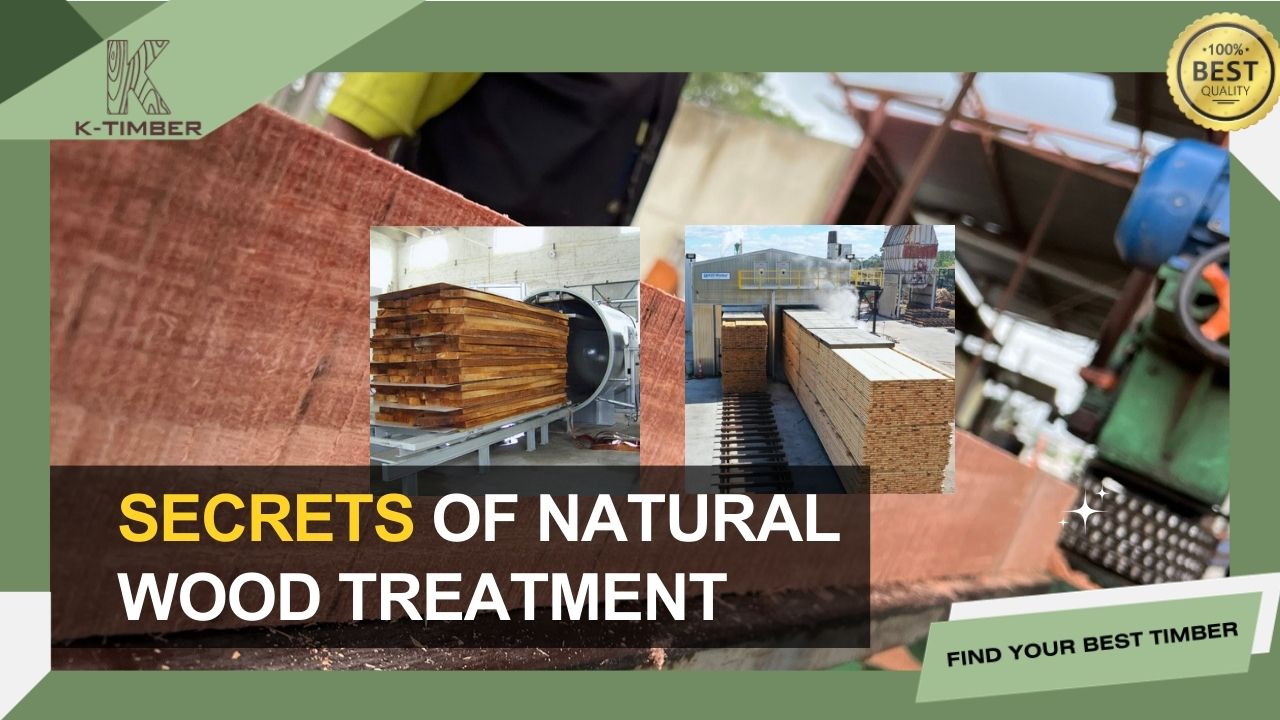
![[K-Timber] Blog Post](https://k-timbers.com/wp-content/uploads/2024/09/Ban-sao-cua-K-Timber-Blog-Post-Boder.png)
